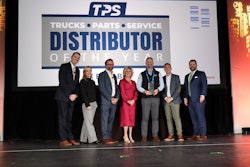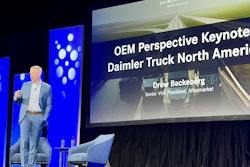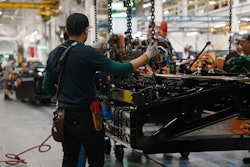First, know that I don’t have an ‘I-told-you-so’ bone in my body. But the November 2004 issue of this magazine carried a column I authored detailing concerns with China as the end-all solution for our supposedly price sensitive heavy-truck parts market.
Most of the problematic scenario I painted then recently has come true. Quality concerns, shifting currency valuations, exploding longshoreman wage demands, evaporating government rebate support and environmental issues have lined up as a perfect storm to rain on the Chinese parade toward world dominance in manufacturing.
Source of supply is certainly an important issue. However, there are two ways to increase results in this market: improving how you buy and improving how you sell. The latter, I believe, pays a far greater dividend and is more sustainable. After all, superior customer service can become a virtually unassailable competitive advantage.
With these observations as background, I question the value of private brands as a major weapon for heavy-duty distributors in the parts pricing war.
Our industry is not alone in facing this question. Total private-label share of U.S. retail sales is expected to hit about 22 percent by 2009 – a 50 percent increase over nine years. Wal-Mart already has achieved 40 percent of its sales on store brands, and store brands are present in 95 percent of consumer product categories.
The simple reason why private brands are succeeding is that too many name brands lack the development skills to avoid becoming unchanging commodities that can be reverse engineered – quickly, accurately and cheaply – then made and sold for a lot less, without any perceived loss of value.
Distributors and marketing groups have deployed a range of private label strategies that follow three historic patterns:
- The original, generic lines were typically of inferior quality and sold at the lowest price. These “value labels” are making a comeback with better quality augmented by unconditional guarantees.
- About 50 percent of all private labels are “copy cat” products that clone the quality and look of the best selling brand items as close as is legally (mostly) possible. The automotive aftermarket is awash in these and they have killed the supplier margins necessary to support vital functions like tech training and sales support.
- Some groups are considering “premium” label products that actually may be of better quality than the traditional national brand, but still sell for less. The trick here is critical mass and absolute supply chain control.
The long-term survivors will be those who execute total supply chain value propositions with focused business models that allow deep discounts on both copy cat and unique product brands (like Trader Joe’s and Ikea).
These players will grow the fastest and make the best return on assets.
The real danger is that distributors will put too much emphasis on the better margin percentages that they get on private labels instead of focusing on the profit dollars generated to cover duplicate inventory and other costs.
Studies conclude that half of private brands are net losers from a profitability perspective, even though they have higher margin percents built into their lower price.
Offering knock-offs of the most popular commodities at lower prices with fatter margin percents usually has resulted in quick “new” sales. Four key questions persist:
- What percent of these new sales are to fleets that already were buying the branded products that yielded almost the same total margin dollars (albeit at a lower margin percent times a higher price)?
- With long supply lines from Asia, plus container quantity shipments, are the clones really turning-and-earning with better fill-rates for customers that have switched from standard brands?
- Private labels can no longer be dismissed as a cheap and nasty alternative to the real thing. Must suppliers bow before distributors, or can multi-level offerings exist?
- Brands are not dead, but premium brand manufacturers must fight to justify any price gap and perceived quality advantage.
These concerns won’t fade as fast as the headlines for poisoned pet food, tainted toothpaste and defective tires. Bruce Merrifield, president of Merrifield Consulting Group, and I are working on some ideas to answer some of these questions… more to come soon.
Bill Wade recently has published a new book titled Aftermarket Innovation. He can be reached at www.wade-partners.com. The views expressed in the Guest Editorial are those of the author and do not necessarily reflect the opinions, beliefs and viewpoints of Truck Parts & Service magazine.







